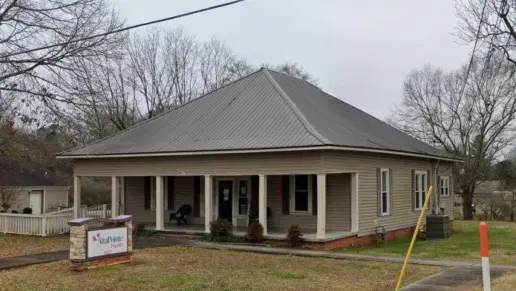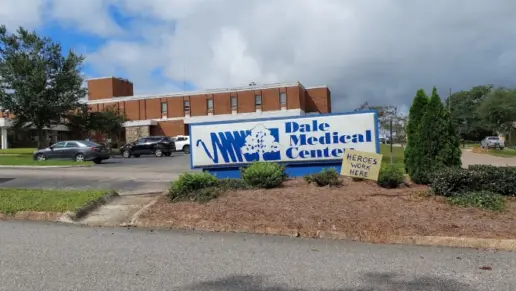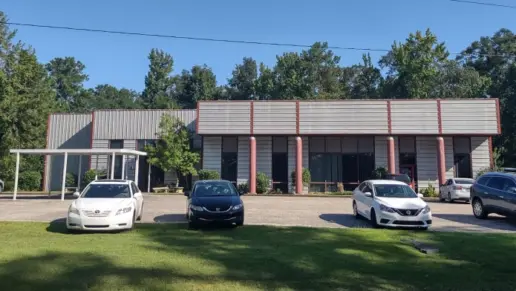About Walker Recovery Center
Walker Recovery Center is in Jasper, Alabama. You’ll see that they especially specialize helping adults combat opiate addictions. They offer outpatient services that include medication assisted treatment and counseling.
One thing I really like about them is that they don’t just treat the obvious symptoms of addiction. Instead, they use several different ways to support your physical, emotional and spiritual needs. You’ll follow a custom plan that’s tailored to your needs. The goal? To kick the habit for good. In addition to FDA approved addiction meds, you’ll get counseling and education, often alongside your peers.
Their focus is to help you work through your challenges and develop healthy life skills for life. If you need meds to help you recover more successfully, they offer methadone. This’ll help ease your physical pain and cravings so you’d be less likely to relapse. Along with medication, you’ll also receive counseling and psychiatric services.
Accepted Insurance

Other Forms of Payment
Private insurance refers to any kind of healthcare coverage that isn't from the state or federal government. This includes individual and family plans offered by an employer or purchased from the Insurance Marketplace. Every plan will have different requirements and out of pocket costs so be sure to get the full details before you start treatment.
Self-pay involves paying for treatment out of your own pocket. You can use savings or credit, get a personal loan, or receive help from family and friends to fund your treatment. If you don't have insurance or your insurance plan doesn't cover a specific program, self-pay can help ensure you still get the care you need.
Medicaid is a state based program that helps lower-income individuals and families pay for healthcare. Medicaid covers addiction treatment so those enrolled can use their coverage to pay for rehab. When a program accepts Medicaid the client often pays very little or nothing out of their own pocket.
Addiction Treatments
Levels of Care
Treatments
The goal of treatment for alcoholism is abstinence. Those with poor social support, poor motivation, or psychiatric disorders tend to relapse within a few years of treatment. For these people, success is measured by longer periods of abstinence, reduced use of alcohol, better health, and improved social functioning. Recovery and Maintenance are usually based on 12 step programs and AA meetings.
Drug rehab in Alabama provides medical or psychotherapeutic treatment for drug dependency. Methods of treatment often include a combination of medication, counseling, and recreational therapies.
Opioid rehabs specialize in supporting those recovering from opioid addiction. They treat those suffering from addiction to illegal opioids like heroin, as well as prescription drugs like oxycodone. These centers typically combine both physical as well as mental and emotional support to help stop addiction. Physical support often includes medical detox and subsequent medical support (including medication), and mental support includes in-depth therapy to address the underlying causes of addiction.
Substance rehabs focus on helping individuals recover from substance abuse, including alcohol and drug addiction (both illegal and prescription drugs). They often include the opportunity to engage in both individual as well as group therapy.
Programs


Clinical Services
The goal of cognitive behavioral therapy in Alabama is to lessen the symptoms of certain mental health conditions, including substance abuse and co occurring mental health disorders. It is known as one of the most effective means of treatment for these conditions.
Dialectical behavior therapy (DBT) is a form of talk therapy designed to treat individuals who are experiencing intense emotions. It is often used in Alabama for the treatment of borderline personality disorder, substance use disorder, and other mental health conditions.
Group therapy is any therapeutic work that happens in a group (not one-on-one). There are a number of different group therapy modalities, including support groups, experiential therapy, psycho-education, and more. Group therapy involves treatment as well as processing interaction between group members.
Individual therapy for drug and alcohol addiction involves one on one sessions with a therapist to address the psychological and behavioral aspects of addiction. Your therapist may use Cognitive Behavioral Therapy, Dialectical Behavior Therapy, or Motivational Interviewing to help you develop coping strategies and work towards long term sobriety.
Rehab treatment in Alabama often involves motivational interviewing (MI). This is an evidence based approach that helps you discover your own interest in change. You'll decide for yourself what next steps you're willing to commit to in order to reach your goals.
Trauma therapy helps you process and heal from traumatic events. Your therapist provides a safe space for you to explore emotions, develop coping strategies, and integrate the traumatic experience into a more coherent narrative. This helps to promote long term mental health.
During family therapy, you'll address the impact that addiction has had on the family unit. Family therapy fosters open communication between members to help resolve conflicts and create a supportive environment. This helps to improve relationships and therefore aids in the recovery process.
Life skills are an essential part of addiction recovery. These skills help you succeed in day to day life and live independently. They fall into three main categories: interpersonal skills, thinking skills, and self awareness. Treatment involves developing these skills for a successful recovery.
Accreditations

The Substance Abuse and Mental Health Services Administration (SAMHSA) is a branch of the U.S. Department of Health and Human Services. Established in 1992 by congress, SAMHSA's mission is to reduce the impact of substance abuse and mental illness on American's communities.
SAMHSA Listed: Yes

The Commission on Accreditation of Rehabilitation Facilities (CARF) is a non-profit organization that specifically accredits rehab organizations. Founded in 1966, CARF's, mission is to help service providers like rehab facilities maintain high standards of care.
CARF Accreditation: Yes
Contact Information
2195 North Airport Road
Jasper, AL 35504













